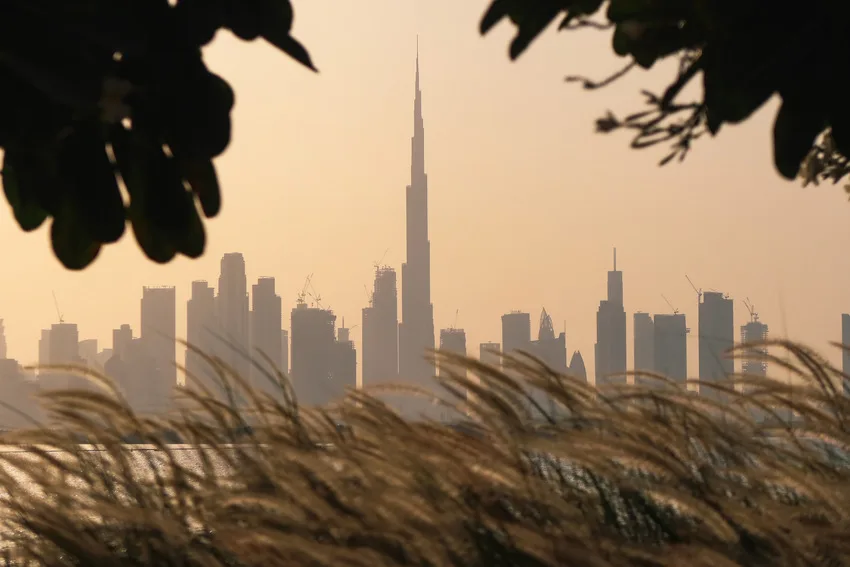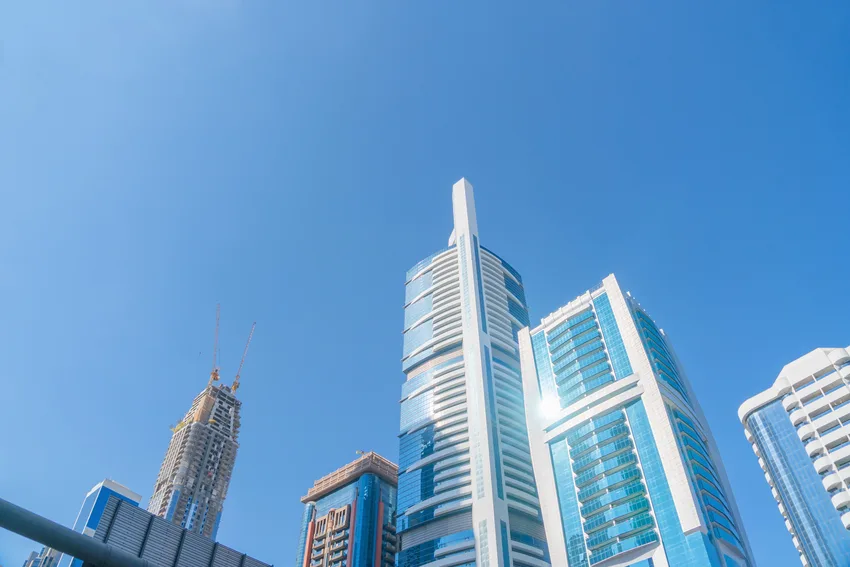Navigating the Commodity Fund Setup in DIFC Process

Key Highlights
- Discover the fundamental steps to establish commodity funds within the Dubai International Financial Centre (DIFC).
- Explore DIFC’s regulatory framework, spearheaded by the Dubai Financial Services Authority (DFSA), ensuring adherence to international standards.
- Learn about the DFA-approved fund types: public funds, exempt funds, and qualified investor funds tailored to diverse investor profiles.
- Gain insights into procedural steps, including documentation and licensing essential for fund managers.
- Unpack crucial considerations like tax efficiency, operating costs, and investor-focused compliance requirements.
Introduction
Setting up investment funds in the Dubai International Financial Center (DIFC) is a good choice for fund managers and investors. This place gives you a modern way to follow the rules for your money. The Dubai Financial Services Authority (DFSA) runs and checks the financial services in this area. At DIFC, you can start many types of funds, even things like commodity funds. This is why many people choose the Dubai International Financial Center for their investment fund work. The Dubai International Financial Center has strong legal systems. These follow the international standards. They help to keep everything clear for investors. Investor protection is also there at every step, so people can trust how their money is handled by the Dubai Financial Services Authority.
Understanding Commodity Funds and the DIFC Advantage

Commodity funds are special investment vehicles that let people put money into physical commodities or related financial products. These funds help investors get more variety in their investments and handle the ups and downs in the markets.
DIFC funds bring some big advantages, thanks to the strong name of the Dubai International Financial Centre in financial services. This area has rules that follow international laws and it is tax-neutral. There is also a lot of freedom for foreign investment funds and investors. This makes DIFC funds a top pick for both local and foreign investors. The clear legal framework and strong regulations help keep money safe and help it grow, making these investment strategies work well.
What Sets DIFC Apart for Commodity Fund Establishment?
Setting up commodity funds in the Dubai International Financial Centre comes with outstanding advantages for fund managers and their investors. The DIFC is known all over the world for its strong rules. It offers legal clarity, as it works under an English-language system. This is managed by the Dubai Financial Services Authority.
One key benefit is that you get 100% foreign ownership here. This means fund managers keep full control over their equity and do not need local sponsors. Also, the DIFC does not charge income or corporate tax. This tax-neutral status will last until 2054. Hence, fund managers can enjoy higher profits and better investment results.
DIFC is based in Dubai, so you have quick connections to global markets. There is easy access to more than 200 cities around the world. This makes investors feel more confident. This is especially good for institutional investors wanting to explore new markets within the DIFC’s watched-over financial ecosystem. The financial services here are designed to support growth. Many people now see the Dubai International Financial Centre and the Dubai Financial Services Authority as top choices in the financial services world.
Overview of Commodity Fund Types Eligible in DIFC
DIFC has many types of funds. This lets fund managers choose what best fits their investment ideas. Here are the main types of funds you can find:
- Public Funds: These are open to retail investors. They have full disclosure rules, so there is more transparency and safety for people who join.
- Exempt Funds: These are for professional investors. A person must put in at least USD 50,000 to get in. These funds cannot be traded publicly and can have only up to 100 unitholders.
- Qualified Investor Funds: These are for high-value investors. The lowest amount you need to join is USD 500,000. Only up to 50 people can join one fund. The process to get approval for these funds is also faster.
Each fund has features to match what different people want, need, or are willing to risk. This makes DIFC a good choice for fund managers, retail investors, professional investors, and anyone looking for new investment options. The different investor funds in DIFC help all kinds of people and their money goals.
Regulatory Framework Governing Commodity Funds in DIFC
The regulatory framework at the Dubai International Financial Centre is set up to make sure companies follow the rules and still have space to create new things. The Dubai Financial Services Authority, also known as DFSA, manages these rules. The guidelines match international standards, so the investment process is smooth.
The legal aspects focus on important areas. These include investor protection, extensive disclosure requirements, and a clear way of working. All of these help build a strong setup. This makes regulatory accountability better and helps bring more professional investors and foreign investment to funds based in Dubai International Financial Centre. The focus on financial services, strong legal aspects, and high standards set by the Dubai Financial Services Authority helps make DIFC a top choice for people who want to invest.
Role of the Dubai Financial Services Authority (DFSA)
The Dubai Financial Services Authority is the main group in charge of rules in the Dubai International Financial Centre. The DFSA makes sure that all financial services in that area follow international standards. It gives licenses to fund managers and is responsible for upholding the collective investment law.
By using a strong regulatory framework, the Dubai Financial Services Authority helps build trust and protection for investors. It also keeps things running smoothly for both investment companies and foreign investors. This way of working turns the Dubai International Financial Centre into a top place for private equity and public funds in the Middle East.
Key Compliance and Legal Requirements
Launching commodity funds in DIFC means fund managers need to follow strict legal and compliance rules. There are important things they have to take care of:
- Extensive Disclosure Requirements: A full prospectus must be given that shows all about investment strategies, asset profiles, and risks.
- Legal Framework: Fund managers must run things according to DIFC’s collective investment law and rules.
- Additional Requirements: There must be enough capital, and governance rules need to be watched closely.
Besides what the rules ask, compliance is also about keeping the numbers right. It means regular valuations and reporting must be open for everyone. All these are important to keep investors safe and happy.
Choosing the Right Fund Structure in DIFC
Choosing the right fund structure in DIFC is very important to make sure your work runs smoothly and meets what investors want. Fund managers can make legal setups like partnerships, investment companies, or trusts.
These setups should match their main goals and follow all rules needed. For example, a limited partnership might work best for institutional investors. On the other hand, open-ended investment companies are good for those who want more flexible plans with stocks. You should look into all the options in detail before picking the right one.
Public, Exempt, and Qualified Investor Funds Compared
It is important to know about different types of investor funds, including an exempt fund. This helps you match these with your work and what investors want. Here, you can see how public, exempt, and qualified investor funds are different.
Specialist Structures: Islamic, Hedge, and Private Equity Commodity Funds
For special needs, DIFC helps you with different types of commodity funds:
- Islamic Funds: These work under Sharia rules, including checks for ethics and making sure money is handled the right way.
- Hedge Funds: These use new financial ways to invest, and try to give good returns no matter what the market is doing.
- Private Equity Funds: These look to grow over a long time, with a focus on new markets and making sure their group of investments can grow bigger.
DIFC gives you a lot of options to make the most of these models. So, you can pick the one that fits your goals best, whether it is with private equity or something else.
Step-by-Step Process for Setting Up a Commodity Fund in DIFC

To set up a commodity fund in the Dubai International Financial Centre, you need to follow certain steps. First, it is very important to know the rules of the DFSA. Then, you should decide how the fund will work, plan how to spread your investments, and think about ways to get institutional investors to join in. Working with skilled fund managers can help you meet all the licensing requirements and give all the right information that is needed. You also need to check the true value of your assets and make sure your way of working matches the accepted process. This helps build investor confidence and makes sure your fund meets international standards.
Initial Planning and Pre-Application Considerations
Good planning is key when you want to start a commodity fund in Dubai International Financial Centre (DIFC). You need to know about the rules set by Dubai Financial Services Authority (DFSA). This will help you follow all the rules. It also helps keep investor protection and trust strong. Picking the right setup for your fund, like a limited partnership agreement, is important. It covers things like who the fund managers are and what types of funds you want to offer. Before you apply, make sure you say clearly what your investment plan is. You should also share full details to get interest from professional investors and groups. This is how you can do well in Dubai financial services.
Application Stages: From Submission to Approval
After finish with the first planning step, you need to send in all the needed documents. This step follows the tough rules made by the Dubai Financial Services Authority. They will check each form you send to see if you meet the rules in the collective investment law. The process ends when the Dubai Financial Services Authority gives their final answer. After you get the yes, fund managers have to follow all the extensive disclosure requirements from the financial services authority. If you are successful, you can now work out of the Dubai International Financial Centre and get access to many new investment options there. This makes it a big step for people wanting to offer financial services in Dubai.
Documentation and Licensing Essentials
A full understanding of documentation and licensing is very important when you work with the Commodity Fund Setup in DIFC. First, you need to get all the legal documents. This includes having a limited partnership agreement and meeting the extensive disclosure requirements. Doing this helps to follow the rules set by the financial services authority.
Next, you must get a license from the Dubai Financial Services Authority. To do this, you need to meet certain licensing requirements. This means you have to appoint a licensed domestic fund manager and follow all local laws. Taking this careful approach can help build investor confidence. It also makes sure that you are in line with the international standards expected in the financial services sector.
Critical Documents Required for Registration
There are some key documents you need to register a commodity fund as a legal entity in the Dubai International Financial Centre (DIFC). One is the limited partnership agreement. This lays out how the fund will work. You also need to give detailed financial statements. These show the net asset value and how the assets are split up. A business plan also must be given. It explains how the fund is managed and how risks will be handled. The Dubai Financial Services Authority (DFSA) asks you to follow some extensive disclosure requirements. Meeting these rules from the financial services authority will help build investor confidence in the regulatory framework of Dubai financial services.
Licensing the Fund Manager: Capital, Policies, and People
Setting up a licensed fund manager in the Dubai International Financial Centre means you need to know about money rules, policy steps, and how things are managed according to the UAE Central Bank. You have to make sure there is enough registered capital for your business to work well. This also shows that you have the money to handle investor assets in a good way.
Good policies are needed for handling risk, following rules, and making sure the team acts the right way. You need to put together a team of skilled people. All these things help build investor confidence. They are also needed so you can meet the rules of the Dubai Financial Services Authority. This is important for anyone involved in financial services in the Dubai International Financial Centre.
Operational Setup and Service Providers
A successful setup of a commodity fund in the Dubai International Financial Centre depends on working with the right service providers. You need to choose licensed fund managers, including an external fund manager, who truly know the rules and needs set by the DIFC. These fund managers make sure everything follows local laws in financial services. Custodians also do important work. They protect the assets and make sure all steps meet international standards. At the same time, administrators help run daily operations and keep accounts in order, while making sure they follow all extensive disclosure requirements.
When you make these business relationships strong, it builds investor confidence. It also helps the fund perform well in a market where many others want to do the same things in financial services. Strengthening your connections with fund managers, custodians, and administrators will put your fund in a good position at the Dubai International Financial Centre.
Appointing Administrators, Custodians, and Auditors
A careful choice of administrators, custodians, and auditors is very important for following the rules set by the Dubai Financial Services Authority. Administrators help run fund operations and handle the accounting. Custodians keep the assets safe and follow international standards. When you choose well-known auditors, there is more openness and it helps build investor confidence. This team is key to keeping the fund honest and trustworthy. They help make sure the fund meets all the rules about sharing information and handle investor funds in the fast-changing world of the Dubai International Financial Centre. By meeting these extensive disclosure requirements and working with trusted partners, the fund manages all the steps in line with the regulatory framework for financial services.
Technology Infrastructure and Reporting Standards
Strong technology systems are key for every commodity fund to work well at the DIFC. When you use advanced tools, it helps with easy investment management and also makes sure you follow all the Dubai Financial Services Authority (DFSA) rules on sharing information. Good reporting methods help fund managers give quick and clear updates about net asset value and how the fund is doing. This helps build investor confidence. Also, keeping up with international standards helps the fund look good to institutional investors. It protects the fund as it competes with others in the financial services market of the Middle East. By meeting these extensive disclosure requirements from Dubai Financial Services, a fund can show it is open and trustworthy. This is important for building trust with both investors and their own team.
Taxation, Fees, and Cost Considerations for Commodity Funds

It is important for anyone thinking about starting a commodity fund to know how taxes work. The Dubai International Financial Centre has a regulatory framework that welcomes foreign investors and gives tax benefits. Some investment vehicles also get to be free from certain taxes. All costs, like fund registration, compliance, and day-to-day spending, should be clear in the financial plan. Expenses can include administration, licensing fees for fund managers, and following investor protection rules. Taking care of these costs can help keep investor confidence strong in the UAE market.
Tax Efficiency in the DIFC Context
Using the Dubai International Financial Centre (DIFC) for commodity funds brings big tax benefits. This helps to make the investment better for everyone. The regulatory framework there gives investors some tax breaks, which can help grow investor confidence. Investors do not have to pay income tax on profits they get from their investments. This is why DIFC is one of the top places for foreign investors and big firms. Also, the DIFC follows international standards. This way, everyone uses these tax advantages while still following the extensive disclosure requirements set by the Dubai Financial Services Authority. When you use Dubai financial services, you get the mix of strong rules, good tax breaks, and clear laws through the financial services authority.
Ongoing Operating Costs and Fee Structures
Starting a commodity fund means you need to handle many ongoing costs and fee systems that are important for steady financial services. The main costs are management fees, office costs, and rules you have to follow. These costs all affect the fund’s net asset value. It is important for financial services to have clear prices that fit with the rules set by the Dubai Financial Services Authority. When fund managers look at these costs closely, they help make sure investor confidence stays strong and that investor funds are safe. This also allows fund managers to manage money with ease and keep up with international standards in the Dubai International Financial Centre.
Conclusion
Navigating the process to set up a commodity fund in the DIFC can bring many chances for people who want to invest. The regulatory framework set by the Dubai Financial Services Authority helps keep investors safe and builds trust with both local and foreign investors. By making sure all the needed papers and licenses are in place, you can see how important it is to understand how the fund will work. In the end, if you plan well, you can build a strong path for growth and lasting success in the busy world of financial services in the Middle East.
Frequently Asked Questions
What are the minimum capital requirements for a commodity fund in DIFC?
The minimum capital you need for a commodity fund in the DIFC is usually $1 million. This helps the fund have enough money to run in a good way. It also makes sure the fund meets the rules from the Dubai Financial Services Authority. The Dubai financial services regulator, known as the Dubai Financial Services Authority, wants all funds to follow these standards for financial services in Dubai.
Can foreign investors participate in DIFC commodity funds?
Yes, foreign investors can take part in DIFC commodity funds. The regulatory framework lets people from other countries invest. This brings in a wide group of investors. But, you have to follow DFSA rules. There may also be limits on some funds. It is a good idea to talk with legal advisors to get advice that fits your needs.
How long does the fund setup process typically take in DIFC?
The process to set up a fund in DIFC usually takes about three to six months. How long it takes can depend on how complex the application is and if all the needed documents be ready. If more information is needed or if there are issues with following the rules, there can be delays.
What are the main ongoing compliance obligations?
Ongoing compliance obligations for commodity funds in DIFC mean you need to send regular reports to the DFSA. The funds also have to follow anti-money laundering rules. You need to have good risk management processes in place and meet all audit requirements. It is important to keep up with any new local laws to make sure you always follow the rules.
Are there restrictions on the types of commodities that can be included in DIFC funds?
Yes, there are rules on what kinds of commodities can be in DIFC funds. The Dubai Financial Services Authority (DFSA) says that only certain approved and compliant commodities can be used. This rule is there so the fund follows the law. It also helps to keep investors safe and protected when they use Dubai financial services. The financial services authority works hard to make sure DIFC funds meet these rules for investor protection.
What are the key steps involved in setting up a commodity fund in the DIFC?
To set up a commodity fund in DIFC, you need to follow some important steps. First, start with careful planning. After that, get all the documents you need and prepare them well. Then, you must send your application to the DFSA. Next, wait to get all the needed approvals. Make sure you always follow the rules and meet the standards set by the regulator. Every step in this process must be done right for your fund to start and work the way you want.
What regulatory requirements must be met when establishing a commodity fund in the DIFC?
To set up a commodity fund in the DIFC, you must first get a license from the Dubai Financial Services Authority. You also have to follow all compliance rules. This includes handing in the right documents. The fund and how it works must fit with local laws. By doing all this, you make sure the fund is working within the rules set by the Dubai Financial Services Authority and meets the standards for financial services in that area.
How can I determine if a commodity fund is suitable for my investment strategy?
To see if a commodity fund is right for you, first look at your own risk tolerance. Think about your investment goals and where you see the market going. Check how the fund has done in the past and who manages it. Also, look at the fees and the types of commodities included. This helps you know if the fund fits well with your other investments.
What are the tax implications of setting up a commodity fund in the DIFC?
Setting up a commodity fund in the DIFC can be a good move because there is a helpful tax setup. There is no income tax on the profits you get, and you also do not have to pay tax on capital gains. Withholding taxes are also very limited here. But, you must keep in mind that you have to follow the rules set by the authorities. There may also be some extra fees, and these could change how good the tax benefits really are.

